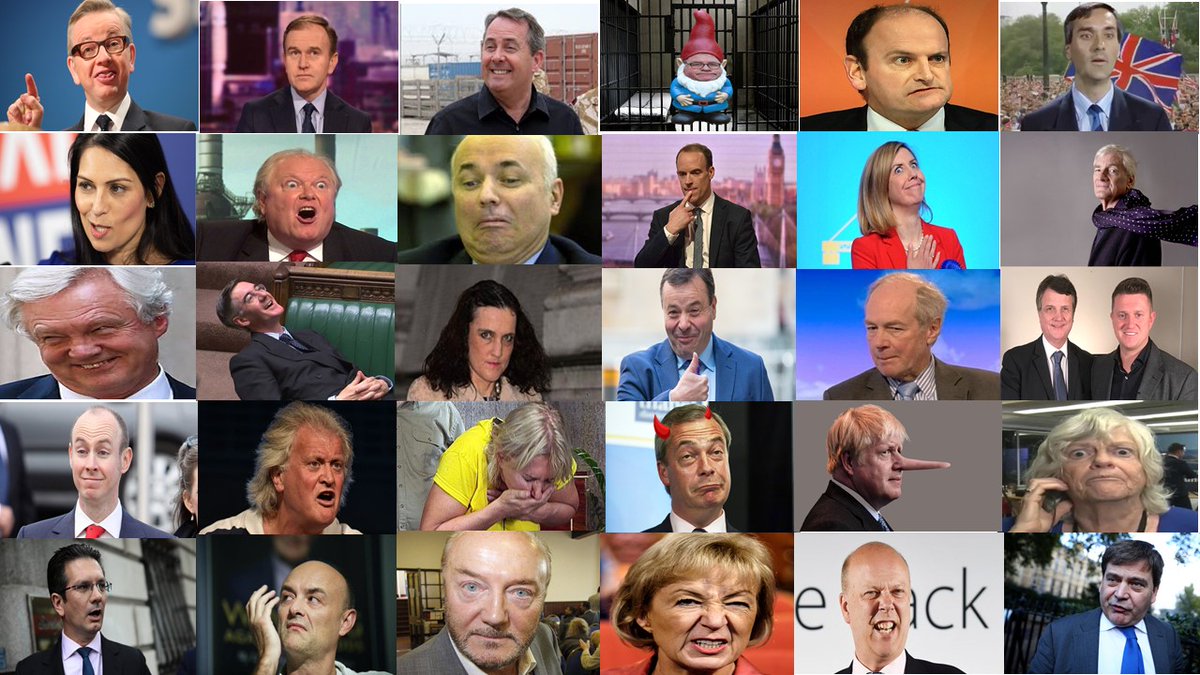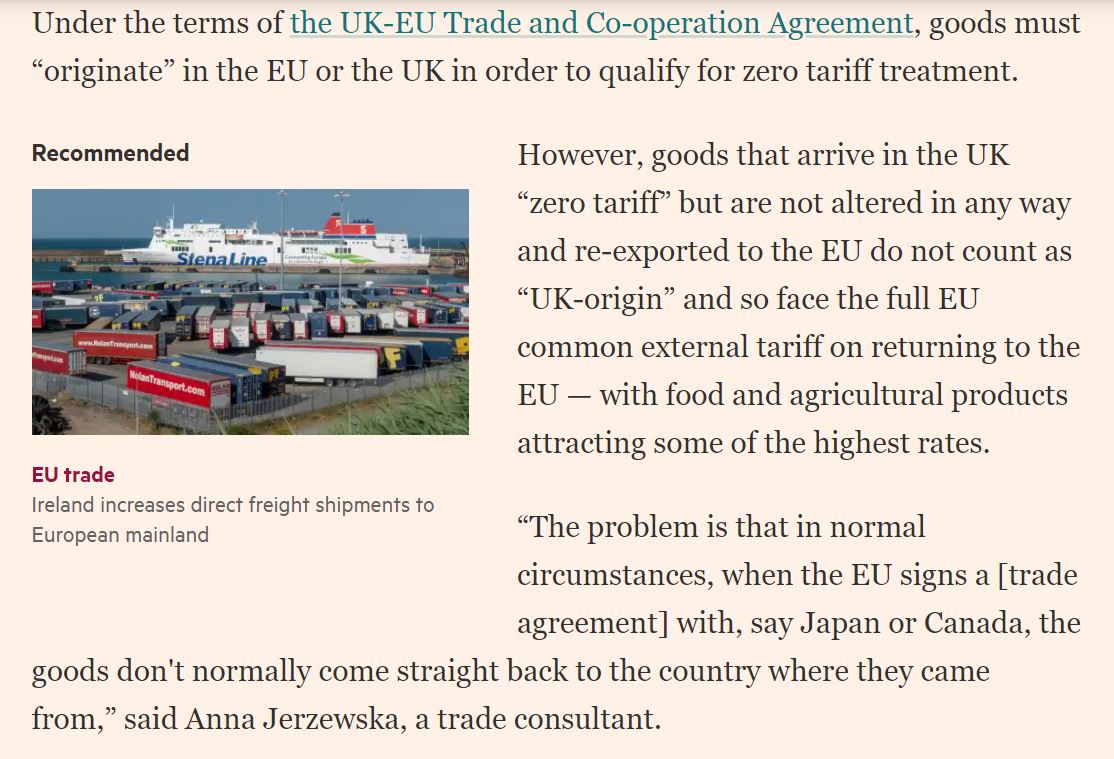1. Brexit. Like Christmas with Covid or dunking your head in a bucket of ice cold water or running your toes over with a lawnmower. What fun we did not have. But here we all are. Forced to play the worst ever drunken party game.
THREAD
It’s all too much. Like playing zenga with no twig things or scrabble with no letters. My head is spinning. Pass me the whisky and egg my nog.
In other words, there is a complicated and shifting balance in place.
I’m sorry but this is life.
(NB I am often wrong)
The political cost of compromise for the Iron Maiden of Brexit versus the political cost of two unequivocal NEAR TERM fundamentals if there is no deal: huger traffic jams and even lower growth and higher unemployment in the first part of next year.
More from Objective Columnist
Still, he's taken a very big step back now. The cliff risk was today; both sides were so close to the edge they could easily have gone over it. The fact @10DowningStreet didn't means Govt must genuinely believe there's now a landing zone that works, & which it can sell ENDS
— Mujtaba Rahman (@Mij_Europe) December 13, 2020
I find it most amusing that people invest so much value in public statements, briefings, tabloid headlines, the tweets of obscure backbenchers etc. Cherchez les fundamentals!
There is a deep vein of analytical pessimism in one particular direction, which, whether correct or not, is noteworthy. On the one hand, a firm belief in the fundamentals - gravity exists - but on the other hand those fundamentals are not meaningful to the final decision.
But gravity does exist! Whether one likes it or not. We do not have wings. Or feathers. And the realisation of the fundamentals will impact the political calculation (though timing differences may apply).
You don’t have to invest any particular optimism or see any virtue in the principal players to make this point.
More from Brexit
31 liars & hypocrites who facilitated brexit
Some are mad, some are bad
All are millionaires, some are billionaires
They’ll profit from UK companies failing, keep their money abroad to avoid UK tax and travel freely with their EU passports
#RejoinEU

https://t.co/mZRr9u1RPb
A brexit advent calendar to count down to loss of our EU rights
— European Unity #FBPE \U0001f1ea\U0001f1fa\U0001f4b6\u2b50\ufe0f (@EuropeanUnity1) December 31, 2020
Box 31: Boris Johnson told us:
\u201cI\u2019m in favour of the single market\u201d
\u201cThe cost of getting out will be virtually nil\u201d
\u201cWe have an oven ready deal\u201d
\u201cThere is no threat to the Erasmus scheme\u201d
\u201cF**k business\u201d pic.twitter.com/w8KxDJYV4x
https://t.co/BY6hKloR9d
A brexit advent calendar to count down to loss of our EU rights
— European Unity #FBPE \U0001f1ea\U0001f1fa\U0001f4b6\u2b50\ufe0f (@EuropeanUnity1) December 30, 2020
Box 30: Nigel Farage told us:
\u201cIn a 52-48 referendum this would be unfinished business by a long way\u201d
\u201cI never promised brexit would be a huge success\u201d
\u201cIf brexit is a disaster, I will go and live abroad\u201d pic.twitter.com/UfO9gzoUPD
https://t.co/NdC0ltLeSM
A brexit advent calendar to count down to loss of our EU rights
— European Unity #FBPE \U0001f1ea\U0001f1fa\U0001f4b6\u2b50\ufe0f (@EuropeanUnity1) December 29, 2020
Box 29: Andrea Leadsom told us:
\u201cI don\u2019t think the UK should leave the EU. It would be a disaster for our economy & lead to a decade of uncertainty\u201d
\u201cMy expectation is that there will not be an economic impact\u201d pic.twitter.com/SMSQ6ruG2h
https://t.co/BLnRLotso7
A brexit advent calendar to count down to loss of our EU rights
— European Unity #FBPE \U0001f1ea\U0001f1fa\U0001f4b6\u2b50\ufe0f (@EuropeanUnity1) December 28, 2020
Box 28: Andrew Bridgen told us:
\u201cAs an English person I have the right to go to Ireland, I believe I can ask for a passport can\u2019t I?\u201d
\u201cWe won\u2019t be crashing out, we\u2019ll be cashing in\u201d pic.twitter.com/jFINFu8xNe


















